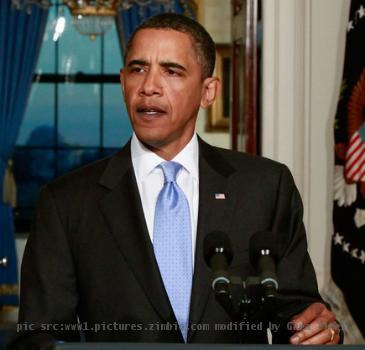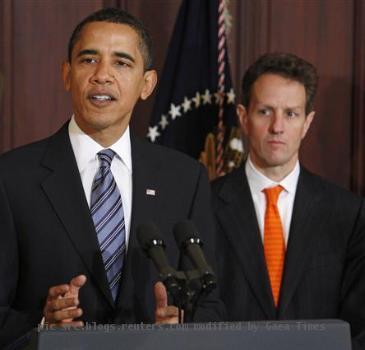European leaders wrap up Greek bailout, seek to calm fears it won’t be enough
By Raf Casert, APFriday, May 7, 2010
Europe tries to douse debt crisis
BRUSSELS — Amid ruthless financial turmoil, the 16 leaders of the euro zone were moving to sharpen the core rules underpinning their shared euro currency to avoid a debt crisis like the one hitting Athens and the spillover that threatens other fragile euro-zone nations, including Portugal and Spain.
They were considering a joint financial defense if another member state moved to the brink of bankruptcy. Several leaders at Friday’s summit want to impose punishing budgetary rules which would force member nations walk a tight budgetary line and avoid the kind of cheating and overspending which led to Greece’s problems.
Several leaders, including French President Nicolas Sarkozy and Chancellor Angela Merkel, insisted Greece and subsequent market moves targeting other euro-zone nations had left the whole framework of rules managing the euro in crisis and needed to be firmed up, according to officials close to the talks.
The officials spoke on condition of anonymity because of the sensitivity of the talks.
To deal with the crisis, some also wanted a deeper involvement of the European Central Bank.
“We must sharpen the edge” of the rules to keep wayward governments in line, Merkel said, adding the 16 euro-zone leaders should also consider changes to the 1992 treaty that laid the groundwork for the shared currency. “Otherwise, it won’t work, in my opinion.”
Opening an evening summit among visibly tense dinner partners, Sarkozy and European Commission President Jose Manuel Barroso insisted the crisis now had gone beyond Greece itself and affected the very roots of the currency. The summit was way behind schedule as the leaders continued to debate behind closed doors.
Canadian Finance Minister Jim Flaherty chaired a G-7 telephone conference of finance minister and central bankers on the Greek debt situation and he urged European countries to move quickly with a strong response.
“The sooner the better,” said Flaherty, who declined to talk about the details of the talks. “The key is that we move toward a resolution. This has to be resolved. It cannot go on indefinitely.”
Flaherty said discussions are continuing and he expects there will be further discussion this weekend.
“Every one understands the need for a clear, timely and strong response,” Flaherty said.
The euro has rules to stop governments from undermining it with reckless spending, limiting deficits to 3 percent of gross domestic product. Those rules were shown to lack teeth when even big countries such as Germany and France broke them for years without serious consequences.
Merkel spoke ahead of an evening summit of the euro countries. Earlier, Sarkozy and Barroso huddled with EU President Herman Van Rompuy to assess the financial fallout of the past days which has financial markets testing the euro’s robustness.
Merkel, whose country holds the key to any solution, spoke Friday with President Barack Obama, who said he supported the effort to deal with the financial crisis in Europe.
The summit, originally called to sign off on the bailout and draw lessons for the future, turned into one of crisis management. Markets have continued to sell off the euro and Greek bonds even as EU leaders have insisted for days the Greek financial implosion is a unique combination of bad management, free spending and statistical cheating that doesn’t apply to other euro-zone nations, such as troubled Spain or Portugal.
They said the bailout should keep the problem from spreading to other countries by giving Greece three years of support and preventing a default when it has to pay euro8.5 billion in bonds coming due May 19.
“We are determined to move forward. But there is unprecedented volatility throughout the world, in the world economy,” said Greek Prime Minister George Papandreou. “That is why today’s meeting here in Brussels is so important. We will reaffirm our confidence in our economies, in our common currency. And this I believe is a very important message for the global economic recovery.”
The markets have taken little heed of leader’s reassurances. Stocks, Greek bonds and the euro plunged even after the head of the European Central Bank, Jean-Claude Trichet, tersely underlined that “Portugal is not Greece. Spain is not Greece” on Thursday. The euro fell to $1.2520, its lowest in 14 months, but recovered to $1.2721 later.
Along with the euro-zone meeting, the G-7 finance ministers were holding a teleconference Friday on the crisis.
A French official who was not authorized to be named because of his office’s policy, said no completely new decisions were to be expected from Friday’s meeting but that some emergency measures could be discussed.
After struggling to get ahead of the crisis for weeks, European governments are now underlining their determination to act by speeding approval of their contributions to the a euro110 billion ($140 billion) emergency loan package for Athens.
The consequences of failure could be dire. Many economists think Greece will eventually default anyway, which could deal a sharp blow to the euro and lead to sharply higher borrowing costs for other indebted countries in Europe. Default, or market contagion to other countries could lead to panic, intimidating consumers from spending and making banks fearful to lend money to businesses and consumers.
In Germany, where bailing Greece out is unpopular, both houses of parliament approved the package Friday and sent it to President Horst Koehler for his signature. With Italy and France, that accounts for over two-thirds of the European part of the bailout package. The International Monetary Funds adds euro30 billion on its own.
Even Germany stressed how precarious the situation had become for the whole of Europe.
“The situation is very serious and no one can say that we are already out of the woods with today’s decision,” Foreign Minister Guido Westerwelle said after parliament approved its euro22.4 billion ($28.6 billion) slice of the package. “What is important now is that we must extinguish the fire so no brush fire spreads in Europe, and we must at the same time fight the cause of the fire.”
France, Italy and Portugal approved their share. Even as Portugal readied to loan to Greece, its own interest rate gap, or spread, between Portuguese and benchmark German 10-year bonds, was ticking higher — a sign that debt fears were infecting market views of Lisbon’s situation.
On Friday it rose nine basis points, or 0.09 percentage point, which means Lisbon would have to pay almost 6.2 percent in interest to borrow on the markets — its highest rate since before joining the euro.
Greek lawmakers approved drastic austerity cuts Thursday worth about euro30 billion ($38.18 billion) through 2012 — that will slash pensions and civil servants’ pay and further hike consumer taxes. The measures were a prerequisite needed to secure international rescue loans.
On Friday, Greek borrowing costs hit another record high and shares on the Athens stock exchange were lower amid losses in European markets and fears that Greece will have difficulty implementing its austerity plan.
Spreads on Greek bonds, compared with their 10-year German equivalent, hit a new record of 1,045.1 basis points Friday, while shares on the Athens Stock Exchange tumbled a collective 2.86 percent with the general share index closing at 1,630.47 points.
European stocks fell but recovered most of their losses by early afternoon Friday. but in early action in New York, traders looked past a surprisingly strong report on the U.S. jobs market and focused instead on Europe’s spreading debt crisis. In the first hour of trading Friday, the Dow was off 182.96, or 1.7 percent, at 10,337.36.
Associated Press writers Pierre-Yves Roger in Paris, Barry Hatton in Lisbon, Ciaran Giles in Madrid and Rob Gillies in Toronto contributed to this report.
Tags: Barack Obama, Belgium, Brussels, Emergency Management, Europe, France, Germany, Greece, Lisbon, Portugal, Spain, Western Europe

















